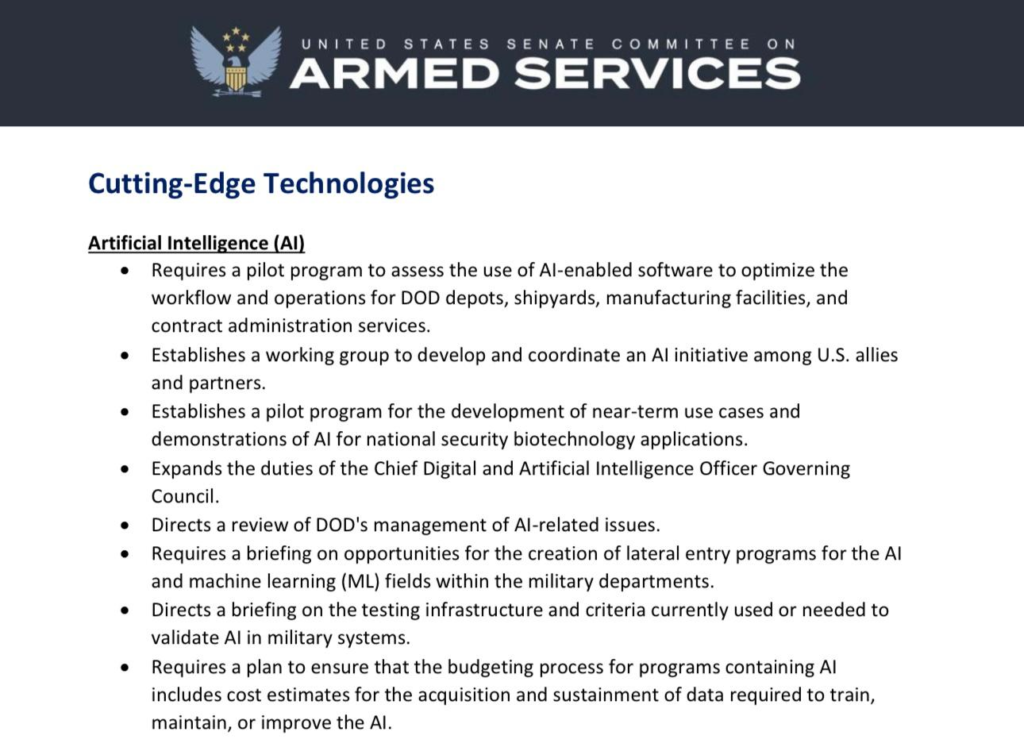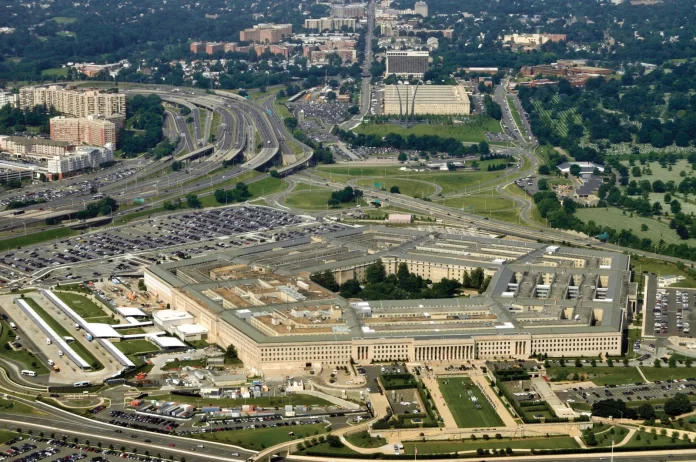The introduction of the National Defense Authorization Act 2025 is set to revolutionize the Department of Defense with new AI initiatives, paving the way for cutting-edge advancements in biotechnology. These initiatives encompass pilot programs leveraging AI-powered software in genetic engineering, molecular diagnostics, and bioinformatics.
Under this legislation, efforts are also underway to synchronize AI endeavors internationally with allies and partners. Additionally, the Chief Digital and AI Officer Governing Council, chaired by Dr. Radha Plumb, a former executive from Google and Facebook, assumes expanded responsibilities in shaping digital and AI strategies for the DOD.
Also Read: Biden Administration Imposes Sanctions on Israeli Group for Disrupting Gaza Aid

The interim report of the National Security Commission on Emerging Biotechnology (NSCEB) released last December underscores the strategic importance of biotechnology in national security. It highlights breakthroughs in precision medicine, synthetic biology, and genome editing, advocating for policy measures to uphold U.S. leadership and counterbalance China’s significant investments in the sector.
Here are the key points from the news about the Pentagon’s initiatives under the National Defense Authorization Act 2025:
- AI in Biotechnology: The Pentagon is launching pilot programs using AI-enabled software in genetic engineering, molecular diagnostics, and bioinformatics as part of efforts to enhance national security.
- International Coordination: The legislation includes provisions to coordinate AI initiatives with U.S. allies and partners globally, aiming to strengthen collaborative efforts in defense technology.
- Chief Digital and AI Officer Governing Council: Led by Dr. Radha Plumb, a former executive from Google and Facebook, this council will play a pivotal role in developing and overseeing digital and AI strategies within the Department of Defense.
- National Security Commission on Emerging Biotechnology (NSCEB): The NSCEB’s interim report emphasizes the critical role of biotechnology in national security, highlighting advancements in precision medicine, synthetic biology, and genome editing. It calls for strategic policy actions to maintain U.S. leadership and counter China’s investments in biotechnology.
- Legislative Focus: The National Defense Authorization Act 2025 aims to position the U.S. at the forefront of AI and biotechnological innovation, ensuring readiness and competitiveness in defense capabilities.



